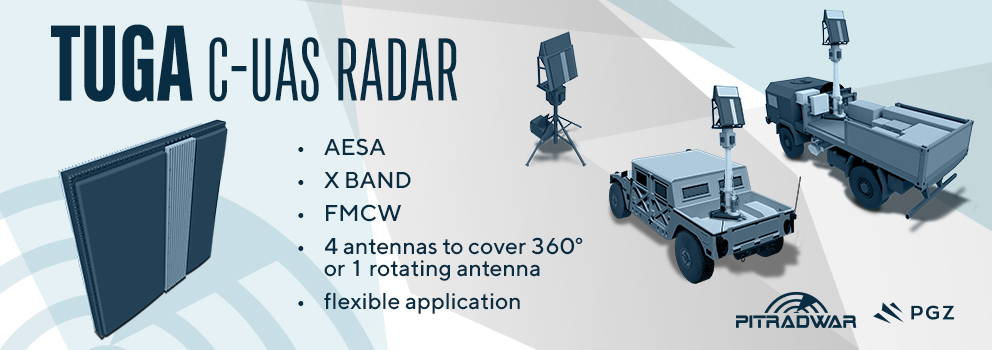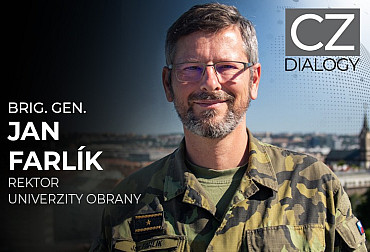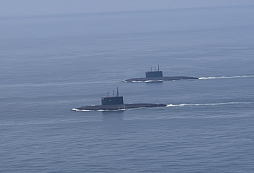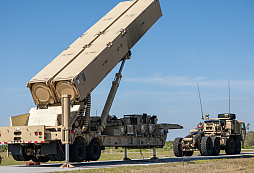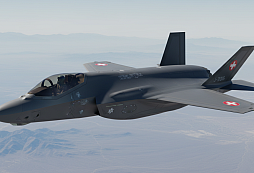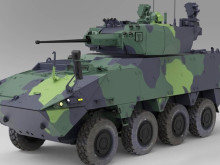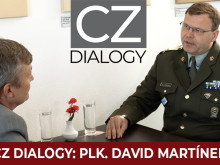Colonel Petr Poruba: The JTAC profession is without exaggeration very demanding and you won't find a suitable candidate easily
JTAC (Joint Terminal Attack Controller) is the designation for a unit of forward air controllers. In missions, they act mainly as the eyes of fighter pilots, helicopter pilots, and also gunners. They make decisions and are responsible for ensuring that the aerial munitions hit their target accurately. This time, we talked about their work with Colonel Peter Poruba, who served in JTAC as a Group Commander, Deputy Company Commander, Company Commander, Instructor and Chief of STANEVAL (Standardization and Evaluation). From 2017-2020, he served at HQ AIRCOM Ramstein – CAS Capabilities Section. Colonel Peter Poruba has deployed three times in foreign combat operations in Afghanistan and personally experienced the attack on Israel by Hamas on 7 October 2023.
Video: Interview with former air instructor Colonel Petr Poruba / CZ DEFENCE
At the beginning of 2001, the unit of Forward Air Controllers derived its name from the British Air Controllers, or rather the courses of Air Controllers in Great Britain, which is why at that time the designation FAC was in force in the Czech Army. "However, the US side always had the designation JTAC. And since there was standardization going on here, this designation was also standardized in our alliance regulations," explains Col. Poruba at the beginning the development of the designation of forward air trainers.
According to Colonel Poruba, the job description of an air navigator can be summarized as follows, "Ensure that the pilot and ground unit are safe and get the biggest weapons on the ground that we can to support the action commander." In general, the job of the air navigator is to coordinate all types of supporting fires that the commander may receive from air support on the battlefield; this includes aerial munitions, artillery pieces, and mortars. "But at the same time, he ensures the deconfliction of all assets, because we don't follow the Big Sky Small Bullets motto, but we have to make sure that everything in the air is done in a planned way, so that there is no possibility of our own aircraft being shot down or ammunition being dropped on our own troops," Col. Poruba clarifies the importance of having a complete overview of the overall situation.
The JTAC profession is without exaggeration very demanding, and not everyone is a suitable candidate. The ideal candidate should not only be young but also flexible. "Our main motto is not to be the best in one skill, but to be at least average in all skills," explains Col. Poruba, a former elite air navigator. The nature of an airborne instructor stems from the fact that he or she supports ground units and thus must be able to effectively interact with all of these units, knowing their tactics and their weapons. "He has to be able to operate most of the weapons himself. And excellent English is also a prerequisite for being an airborne instructor. All communication with the aircraft and in the environment is in English," says Col. Poruba.
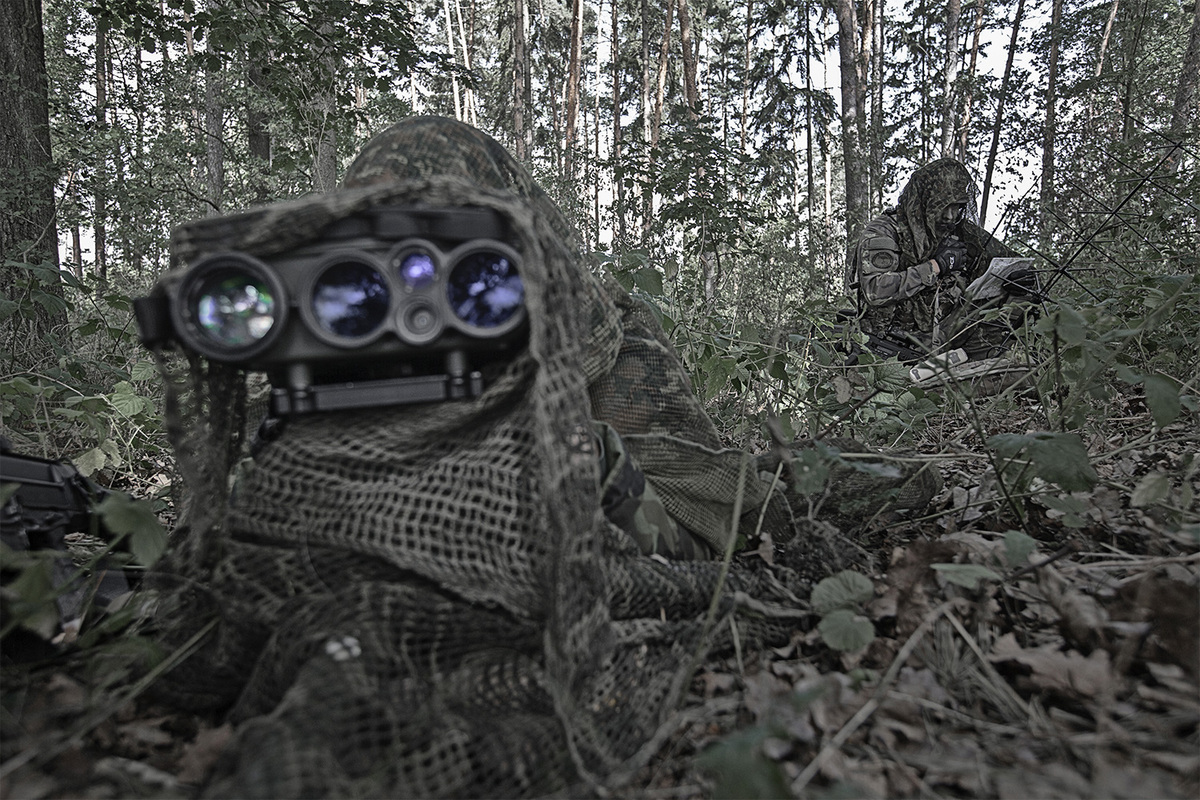
Another necessary characteristic of an air navigator is a very good spatial imagination and mental resilience. "We're talking about fire systems integration. We are not only talking about 2D space, but also 3D space. You have to be very mentally resilient, and most importantly, you have to be able to learn," says Colonel Poruba in the interview, adding that the air navigator is an integrator of all the fire systems that we find on the battlefield, where detailed planning must take place before and during the use of these means. "But most importantly, the air navigator must be able to communicate in an international environment, because we are part of NATO," says Colonel Poruba, adding that the certification allows the deployment of Czech air navigators under any command within NATO countries. In practice, this means, for example, that a Czech instructor can be deployed for a German commander. "Or, as was common practice in Afghanistan, we routinely served with US troops to support them and our troops," recalls Colonel Poruba.
Flight Attendants usually work in teams, which is due to the nature of the tasks. During Colonel Poruba's time in Afghanistan, the guides always worked in teams of two. "Everyone had a role to play in the mission. For example, one was in charge of airspace deconfliction, the other was in charge of the aircraft itself and the fires it was directing. In general, I would say that they work in a team, however, the navigator is also able to work independently," adds Colonel Poruba.
JTAC field equipment includes not only the soldier's personal gear, but also other materials that enable the soldier's work. "That's why it takes such a long time to prepare because there is a lot of technical material that an airman has to operate. I would say a computer is commonplace nowadays. However, the basic requirement is that the navigator knows where the target is so he can bring the pilot's eyes to it. That's just one of his main jobs. That means he has to master the map and the compas," says Colonel Poruba.
Our flight instructors are doing very well in the alliance competition. "I can personally judge this because I have worked for three years in NATO structures at the NATO Supreme Air Command in Ramstein. My job was to accredit all the NATO programs for Forward Air Controllers, from the preparation to get that program accredited, through the accreditation itself, and I had the opportunity to see more or less all the programs. That's where you realize that we stand very well, we have very well prepared personnel," Col. Poruba said.
In the interview, we also discussed whether, for example, the acquisition of the 5th generation F-35 aircraft will have any impact on JTAC's work to date. According to Col. Petr Poruba, the use of new technologies changes many things, but the role of the guides will remain basically the same - i.e. close air support. "However, we then need to discuss what kind of close air support the F-35s, which are designed for other missions but have the capability to drop air-to-ground munitions all the time, will give us. The job of the air controllers will change in that they will no longer be doing those classic 'Type One Control' where they have to see the aircraft, they have to see the target and they do what is called Low Level. They'll move on to, say, Type 2 and 3 controls. But mainly they are evolving techniques, tactics and procedures on how the navigator is used. Maybe it will no longer be at the level of a mechanised squad, but maybe it will be put at higher levels of command because of digitalisation, because it will have much more 'Situational Awareness' of the battlefield," Colonel Petr Poruba explains the future of the guides.
We also wanted to know what was the most difficult thing for Colonel Poruba in his career. "The hardest thing for me was leaving the unit. Once you're there, you learn new things because you have them at your fingertips. And the hardest part is leaving for a while and then coming back. I went to Ramstein in Germany for three years, then I came back and all of a sudden you find out that you don't even know a lot of people. The unit is such a small family, nowadays it is a bit bigger, but when I started with the unit there were ten of us," recalls Colonel Poruba.
On October 7, 2023, Colonel Petr Poruba was in Israel for a one-year course at the Michlala l'Bitachon Leumi National Security College (MABAL), the very first student from the Czech army. "It is not a pleasant date. For us, the studies turned into a real war school, because there was a war and we had to go to the shelter a lot," recalls Col. Poruba of that fateful day. "We continued our studies and we went directly to Gaza. We walked from Kibbutz Beeri through the center to the seashore, through the Israeli battalion headquarters that was located there," Poruba says in the interview, adding that it was very informative."I have completed three missions in Afghanistan, so I certainly have an idea of how the conflict is going. This was different because it was really an attack on civilians," says Poruba, who arrived at the site about a week after the attack. It was at Kibbutz Beeri, which was one of the worst affected, that the attack was evident. "The attack was thoroughly planned, it was very aggressive and insidious. It was carried out in three waves. In the first wave, elite Hamas forces - the so-called NUKBA Force - went out. Then the regular units went in, and they were tasked with carrying out more terror directly in the kibbutzim. And finally, the civilian population from Gaza got in, and they were motivated to go out and make money, so to speak, under the prospect of financial rewards. There was great devastation and destruction," says Colonel Petr Poruba, describing his impressions from the scene of the conflict.
But now, after more than a year of conflict, you cannot tell at first glance that there is a war going on in the streets of Israeli cities. "The population knows that there is a conflict going on, but if you were to come to the central area in particular now, you wouldn't even think that there was a conflict going on. It only starts to affect you when the sirens go off and you have to go to a shelter. But until then, it looks like nothing's happening. It's a normal life for them that they are used to," Colonel Poruba describes the atmosphere in Israel.
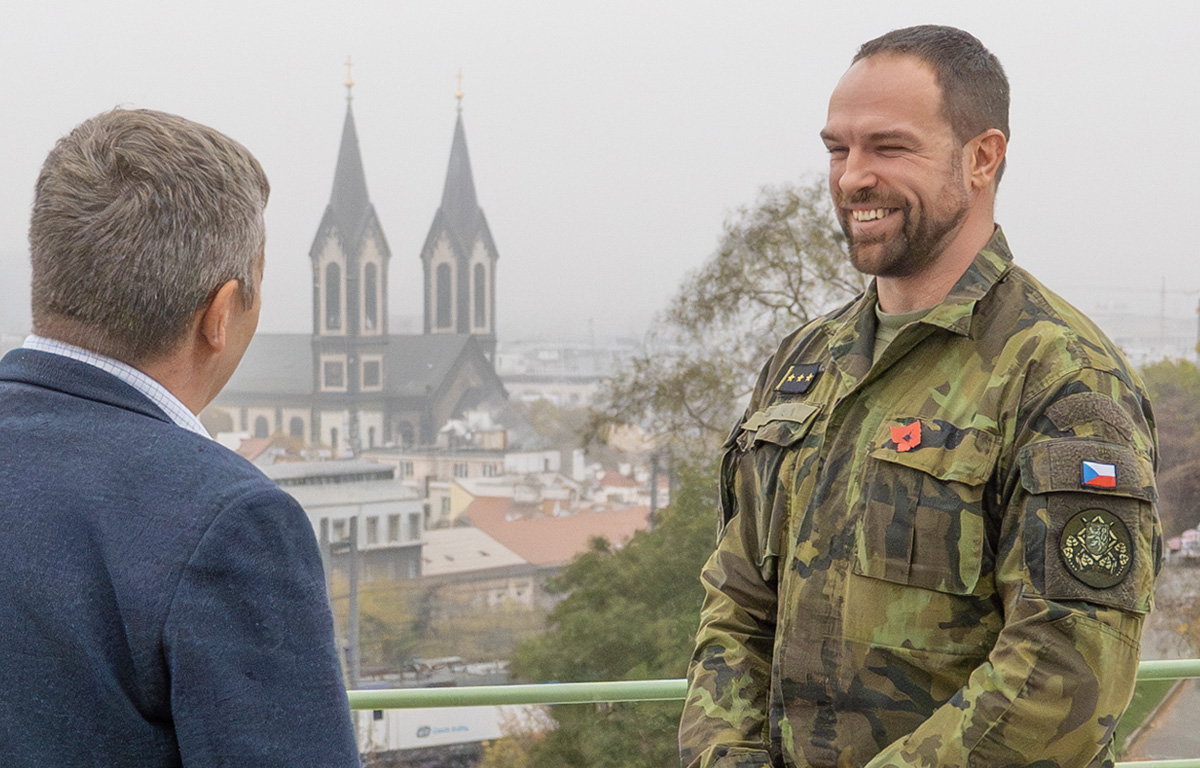
Israel's primary air defense element is the Iron Dome mobile air defense system, which is designed to disable short-range rockets and mortar shells. "This is a very effective tool. It depends, of course, on how it is used. It has to be said that it is not the name of the entire air defense system. It's the lowest layer, and the overall air defense is layered. You have a lower layer, a middle layer and a high layer. Iron Dome is the lowest one, then there's David's Sling, and on the high altitude ballistic missiles, the Arrow 2, Arrow 3 system is already working. Those tools are effective," confirms Colonel Poruba. For logical reasons, Israel is continuously improving these systems. "Israel is known for being a technological power and if we ask what will follow the Iron Dome system, we know the successor. The successor will be Iron Beam. And here we are already talking about laser means used to shoot down missiles. This will be the next step and it will be a cheaper system than the current one," says Colonel Petr Poruba, who now works as an adviser in the analytical department of the Chief of the General Staff of the Czech Armed Forces.
In the interview, we also learned what the forward air controller's equipment includes, how our soldiers use the ability to improvise, and what modern technologies today's air controllers use.
